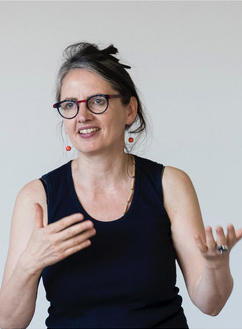Ruth Förster: Designing Citizen Science Projects (I)
Objectives
In this workshop, we will focus on hands-on methods for designing transformative, participatory citizen science projects, which foster co-production of knowledge and the inclusion of different worldviews and values between scientists and citizens.
After the workshop, you will
- Know how transformative learning can support the goals of citizen science projects and how you can integrate it in the design of a project.
- Critically reflect a transformative citizen science design model, its potentials and restrictions.
- Have discussed and tested selected methods for integrating transformative learning approaches in citizen science design.
- Have first concrete ideas how to apply transformative learning and project design in concrete citizen science projects.
Description
In participatory citizen science projects, diverse participants from science and practice are asked to bring in heterogeneous knowledge and ways of meaning-making, in order to support problem solving or exploration according to the goals of the project. Throughout the project they can (co)-produce new knowledge and understanding. This diversity and heterogeneity offers on the one hand an opportunity for mutual learning between scientists and citizens, which may even be an explicit goal of the project. On the other hand, they may be challenging since they are rooted in implicit premises like worldviews or values which may cause misunderstandings or strong irritation in the research process and even hinder new learning when not addressed explicitly. Transformative Learning offers a framework and models for understanding these learning processes and their challenges, including cognitive but also normative/ethical or emotional aspects of learning on individual and collective levels. Hence, insights on these processes support us to design or intervene in citizen science projects adequately when challenges are showing up.
In this workshop, we address these learning opportunities and challenges by introducing a participatory citizen science design model combining it with a transformative learning model.
We will blend hands-on practice/experimentation with critical reflection on theory inviting participants to share own experiences or prospective cases.
Start: Tuesday, January 14, 9.15 am
Location: Rämistrasse 59, Room RAA-E-30
